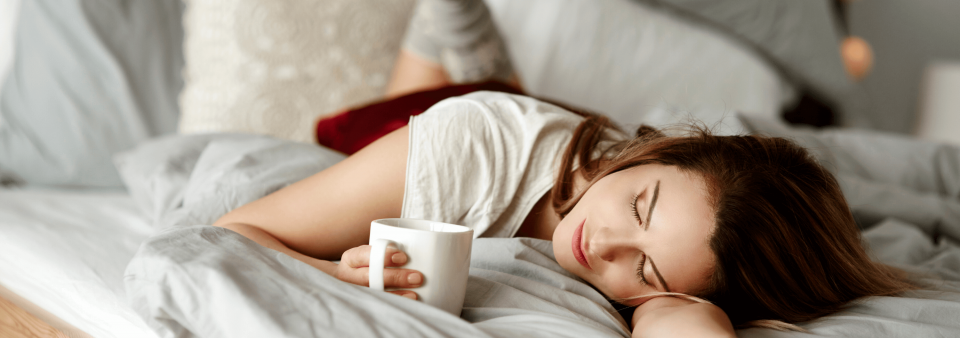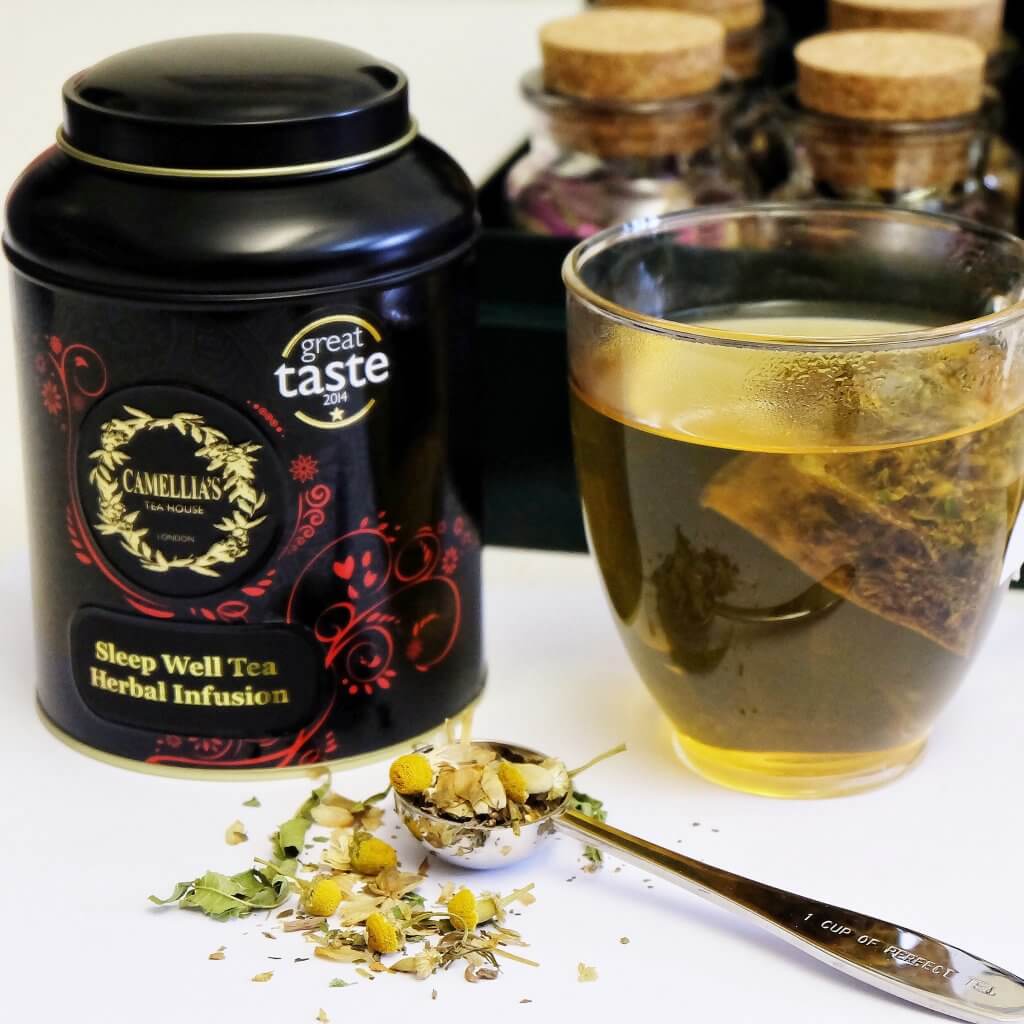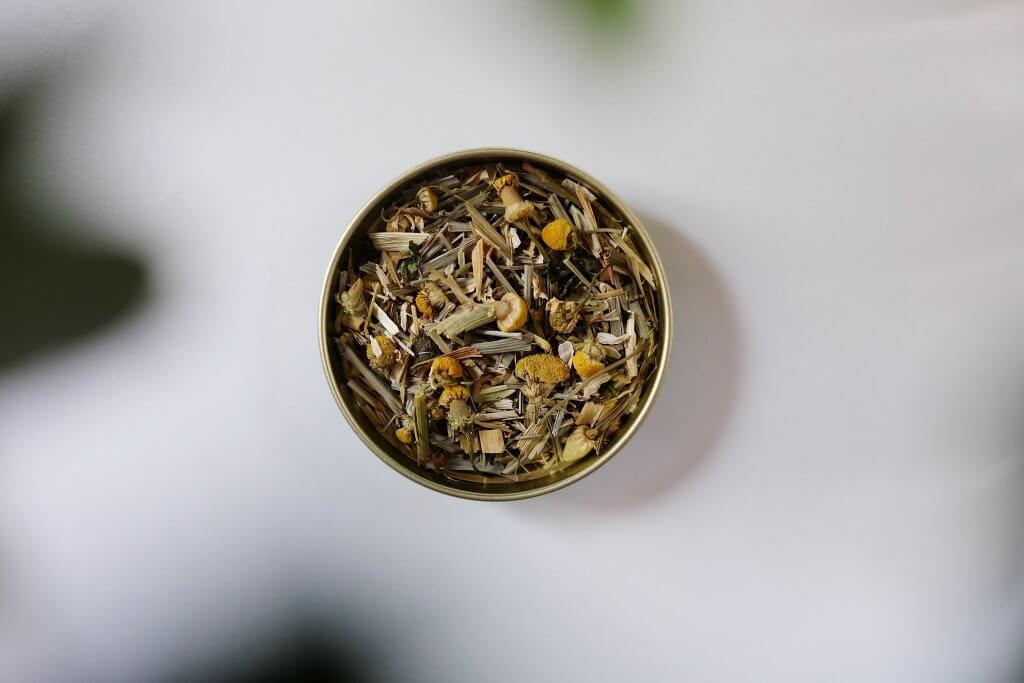How to Get a Good Night’s Sleep

In the third blog of our series with Alex Hurt, she explores the topic of good sleep rhythms and how to improve your daily performance of sleep.
So.. curl up with your favourite wellness tea, light a candle and read Alex’s musings to put a smile on your face and some goodness into your day.
It’s another sunny day here in Suffolk, I can hear the birds singing, kids laughing and I even heard an ice cream van earlier. Whilst we are having some mighty fine weather, I even donned on some shorts today. Although I do think I reflected the sun back into the sky considering how white my legs are, but it’s important to get some sun on your skin – isn’t it? This week I am writing all about sleep and for a good nodding pattern, your natural body clock requires natural light and natural dark to thrive, thus getting your vitamin D dose is an important part of your day – that can indeed assist with sleep. Sleep is the number one health insurance that we all need to invest in. I am going to delve into our sleeping rhythms, hormones and how you can increase your daily performance with sleep. So, savour this deliciously nap inducing read with a dreamy cup of Sleep Well Tea this evening.

Forty winks, the siesta, the nana nap… who has the time anymore? Well, lockdown has certainly provided that; time. Are you sleeping too much? Are you not getting enough sleep? Are you sleeping and waking at strange times? Weird dreams? Yes, me too! Interestingly and quite obviously (when you think about it), sleep has a profound effect on your physical and mental wellness. Many of us are on a merry go round of sleep aids and waking aids that we barely even think about that are contributing to our sleeping patterns.
We spend one third of our life sleeping, we should be getting between 7-9 hours of sleep per night. For those that sleep for 10 hours and over or 6 hours and under, you could be putting yourself at risk for metabolic syndrome. Not catching enough z’s can seriously mess with your weight and general intake of food. You can form unhealthy relationships with food through tiredness. So, for instance let’s imagine this…you are feeling stressed, so you’ve had a glass or two of wine. As alcohol is a sedative it instantly took the edge off, you were able to relax for the evening and fell asleep easily. Perhaps you woke a few times in the night but hey, at least you got to sleep. When you wake up, you feel like you haven’t slept well, you’re definitely not enthusiastic about that long walk you had planned, and the fruit and granola you had lusted over in your mind is replaced with something a little more substantial, and you can’t survive without a few cups of coffee to wake you up and help you get on with your day.
By 11am when you should be at your peak, you find yourself reaching for the caffeine again. By lunch time you’re starving and the salad you’ve taken to work just isn’t going to hit to spot and you need some extra sugar to power you through the afternoon.
By 2pm you wish you could just close your eyes and you’re at war with your eyelids to keep them open. You’re unproductive, tired and feeling a bit anxious. You ride the tired wave with another caffeine hit and get through the rest of your day. On the drive home you can’t wait to get in put your comfy clothes on and have an early night… but dinner is late and whilst you’re waiting for it to cook you pour yourself another glass of wine. The cycle continues.
Tiredness can cause poor choices, affect your general productivity and function. If you are under sleeping, you’re likely to be underperforming, and using energy enhancers to get through the day. For those who believe that their bodies can be pumped with caffeine and sleep standing up, that
maybe so, however it’s not quality REM zzz’s you’re catching. Therefore, this is affecting your performance at work, in the gym, your patience with yourself and others. REM sleep is critical to boost your emotional intelligence, and for those looking inwardly at their mental wellness, you seriously would be wise to get a handle on your caffeine intake.
In a regular serving of coffee (just one cup) the half-life of that caffeine can last 6-7 hours, but more shockingly a quarter life of the caffeine will last for 12 hours. That’s one solitary coffee… I’ll leave that to percolate 🙂
Research points towards breaking down your sleep cycles into 90 minutes, which would provide you with optimal sleep. Each 90 minutes segment provides the correct time for all phases of the sleep cycle. To work out the best time to go to bed, work backwards from your natural ‘wake up’ time in 90-minute segments. If you for example keep waking up at 2am in the morning, get up go do something, don’t fight it and then get back to bed from 3.30- 6.30am, if 6.30am is your waking time. The key is with any form of insomnia is to accept it, work with it and not resent it. The more you toss and turn the less likely you are to go back to sleep.
You see it’s all about your rhythm and that’s governed by nature, by light, by what you put into your body and even your brain. Consider what you are doing to ease down your day and step into relaxation. An evening walk or run? A warm shower? A 15-minute meditation before dinner? Some aromatic essential oils in the lounge? Have you capped your screen time? A bedtime alarm reminder? Hopefully throughout the day you got enough light and as night falls the body will naturally produce melatonin that will bring on your sleepy vibes. If you are turning to the bottle to de stress and help you sleep, this is counter-productive. Remember you need quality sleep to restore your bodies functions and provide the rest required. If you need caffeine hits to get you through the day, you just aren’t getting enough sleep-end of.
Let’s start your journey to la la land with some food for thought. Is your bedroom calm and peaceful? Do your bed sheets feel soft to touch? Is your mattress supporting you? Is the bedroom cool enough to sleep in? Is your phone on silent and away from you? Have you turned your WIFI off? It’s important that where you sleep is comforting, and promotes sleep. This is why phones, tablets and tv’s in the bedroom are never a good idea.
The ritual… you knew it was coming. The bedtime ritual is something that can and will make all the difference to your quality of sleep.
- Setting the scene – leisure wear on (said in an American accent), dim the lights, aromas on – try lavender, chamomile, geranium to soothe you.
- A taste of sleep – pour hot water onto Sleep Well Tea, brew for 5 minutes. This is a great herbal wellness tea which contains chamomile, hops and valerian, to promote calm, reduce nervous energy and realign you ready for a better night’s sleep.
- Taking deep breaths in through the nose and out through the mouth, breathing in the aroma and breathing out your day.
- Sleep meditation – this can be found on apps or on you tube. It’s very personal, but it works. I often use guided meditation and more recently I’ve been listening to a ‘Gong Bath’… google that and listen. Just be sure not to have your phone or tablet next to you whilst you sleep. The blue light will disturb your sleeping pattern and quality.
- Don’t fight it, if you wake up in the night, do something for 90 mins and then try getting back to the land of nod.
I am hoping this peacefully packed pill is just what you need to learn more about your sleeping patterns and cycles in lockdown and beyond. Consider some naturally energising tea alternatives to coffee from Camellia’s Tea House.

One of my favourites to give me my tea-time-out with a burst of energy is Aching Muscles Tea, not only ideal for aching muscles this tea combines the relaxation of chamomile with the zest of citrus and hint of spearmint. In the afternoon when I need a pick me up, instead of reaching for a coffee I have a pot, and a break, along with a little walk for 5 minutes.
Try it! Until next week, sweet dreams and sleep well.
Continue your Wellness Journey with Alex’s fourth blog “When the world stood still“.








COMMENTS